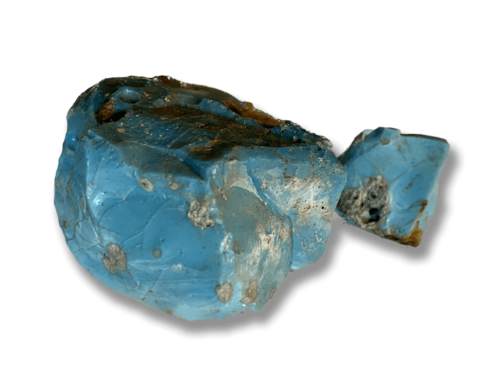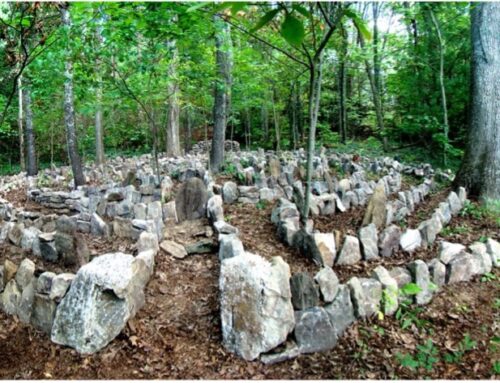We can never obtain peace in the outer world until we make peace with ourselves.
— HH the 14th Dalai Lama.
It’s no secret; people often hide who they really are because they are afraid of revealing their true nature, or they don’t know how. Often this hiding-out is done on an unconscious level, because the corresponding fear-of-revealing evolved somewhere in early childhood, before we were able to make conscious decisions. Such fears are often buried so deeply that when they do reveal themselves to us (often in uncomfortable or challenging situations), it’s as if we’re helplessly watching ourselves in the reactive state, unable to intervene; unfortunately, what we see usually isn’t pretty.
Does your outside match your inside?
Perhaps your nature is compassionate, loving, and wise, and you want to express it, but find yourself shielding yourself, unable to express your true self because you’re afraid of being hurt or appearing weak; That’s being hard on the outside and soft on the inside, much like an egg, the shell protecting the riches inside.
On the other hand, perhaps you cultivate the social role of a compassionate, loving, wise person, but when the moment comes to truly express this side of yourself, you go into instantaneous protective judgement and criticism (of yourself or of someone else). That’s being soft outside and hard inside, somewhat like a peach, with its jagged internal seed-cover that protects its kernel of true growth.
I believe there are many of us who strive everyday to reveal our true, loving, compassionate, forgiving natures. What is it, then, that holds us back when, in a given instant, the scared, protective side of us takes over?
What would it take to soften our hard exterior shell, or to dissolve the jagged seed-cover of fear inside us? According to many schools of psychology, we create these fears because we are trying to protect that which does not really need protecting—our ego.
What part of our ego needs protecting? I believe, as do others, that it’s the child within us. As adults, not many of us would choose to hold onto old unconscious identifiers and triggers of trauma. However, these hindrances to spiritual wholeness have a way of manifesting at just the (wrong) right moment—just when we think we can be the loving compassionate person we aspire to be, or know ourselves to be, wham! we’re revealed to ourselves by our actions, words, or thoughts, as an egg or a peach.
Perhaps your way of dealing with life’s difficulties is something you picked up from someone else’s idea of the world. Perhaps it’s based on a decision about yourself arrived at in circumstances that you decided (or were made to feel) were your fault . Perhaps your life or family situation has typecast you in a certain role or attitude that you’ve been unable to break out of.
In the field of NeuroLinguistic Programming (NLP), the presupposition is that all of us try to make the best choices available to us at any given moment. These choices, however, can affect us and others for years to come, especially if others disagree with them, or if they get us into trouble on any level (including ourselves), and create the need to protect and defend them. We then find ourselves (again, either consciously or unconsciously) judging, feeling guilty, or blaming ourselves or others.
I once attended a talk on compassion by HH the Dalai Lama at Stanford university. During the question-and-answer segment following the talk, the moderator read out loud pre-selected questions submitted by the students. One particular question had to do with helping, i.e., how does one know when to help and to what extent?
The Dalai Lama patiently and graciously answered to the effect that one does what one can when one can. He then commented gently that that particular question revealed the level of the person asking as not very high in understanding on the subject of compassionate generosity.
The moderator responded quickly and somewhat defensively that he didn’t write the questions. At that moment a golden teaching opportunity revealed itself; the Dalai Lama replied laughingly to the moderator: “Oh, look, you are protecting yourself.”
The moderator, apparently feeling the need to defend himself from the perceived accusation of low understanding, ironically didn’t understand at that moment that he was, indeed, protecting his ego, and hastily went on to read the next question. By doing so, he missed the amazing opportunity to ask the Dalai Lama to explain and explore the false perception of self that generated the ego-driven unconscious response, and to help him and everyone there to understand it better.
We have all been there in the moderator’s shoes, busted for ego-protecting behavior. Of course, that was a particularly tough situation for him—who would want to explore and learn about one’s ego-weakness in front of thousands of people? Believe me, though, a similar (though perhaps not so public and exalted) chance would have presented itself again to him the next day, or, the day or week or month after that, until it couldn’t be ignored.
What would we have done in his shoes? What did we do the last time such a learning situation presented itself to us? Did we muster our outer or inner defenses, or choose to really listen and explore? It’s a characteristic of this unnecessary protective behavior that it reveals itself at the most opportune times for learning, which in the ego’s view are the most inopportune times for getting busted.
In this case, whether you are an egg or a peach, the ego is really trying to help you. Can you learn to see your opportunities to penetrate to your vital core, or to crack the hard shell that is truly preventing you from revealing your true soft, loving, compassionate, wise nature? Can you bravely decide to learn from each of these opportunities?
Egg, peach, or your true open self? The choice is ultimately yours.
Blessings ~ Melinda




